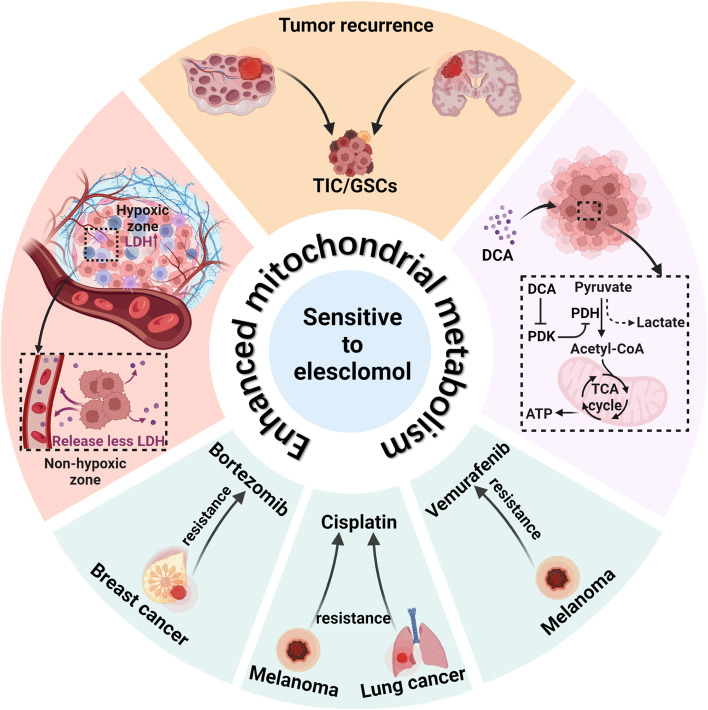Fig. 1.
Enhanced mitochondrial metabolism sensitizes cancer cells to elesclomol. Cancer cells highly dependent on mitochondrial metabolism are sensitive to elesclomol, including cancer stem cells, drug-resistant cancer cells, and glycolysis-inhibiting cancer cells. Both TICs in ovarian cancer and GSCs in glioblastoma are associated with cancer recurrence and are highly dependent on mitochondrial metabolism. Drug-resistant cancer cells, including bortezomib-resistant breast cancer cells, cisplatin-resistant melanocytes and lung cancer cells, and vemurafenib-resistant melanocytes, increase their dependence on mitochondrial metabolism in the development of drug resistance. PDK inhibitor DCA enhances mitochondrial metabolism in melanoma cells by shifting their metabolism from glycolysis to oxidative phosphorylation. In addition, hypoxia in solid tumors reduces the intensity of mitochondrial metabolism, and the degree of tumor hypoxia is positively correlated with the serum LDH levels of the patients. Patients with low serum LDH levels are sensitive to elesclomol. ATP: adenosine triphosphate; DCA: dichloroacetate; GSCs: glioblastoma stem cells; LDH: lactate dehydrogenase; PDH: pyruvate dehydrogenase; PDK: pyruvate dehydrogenase kinases; TICs: tumor-initiating cells

